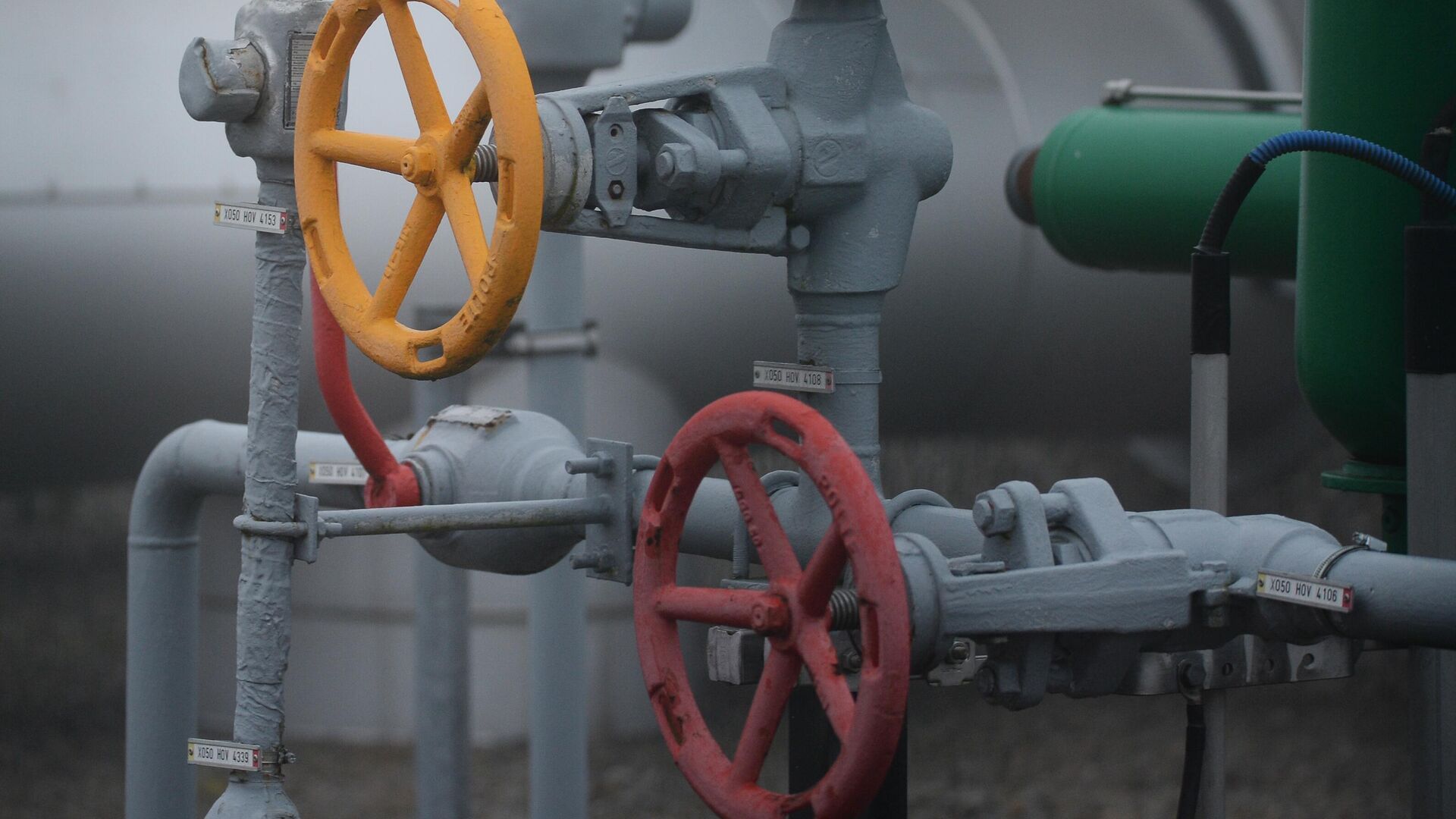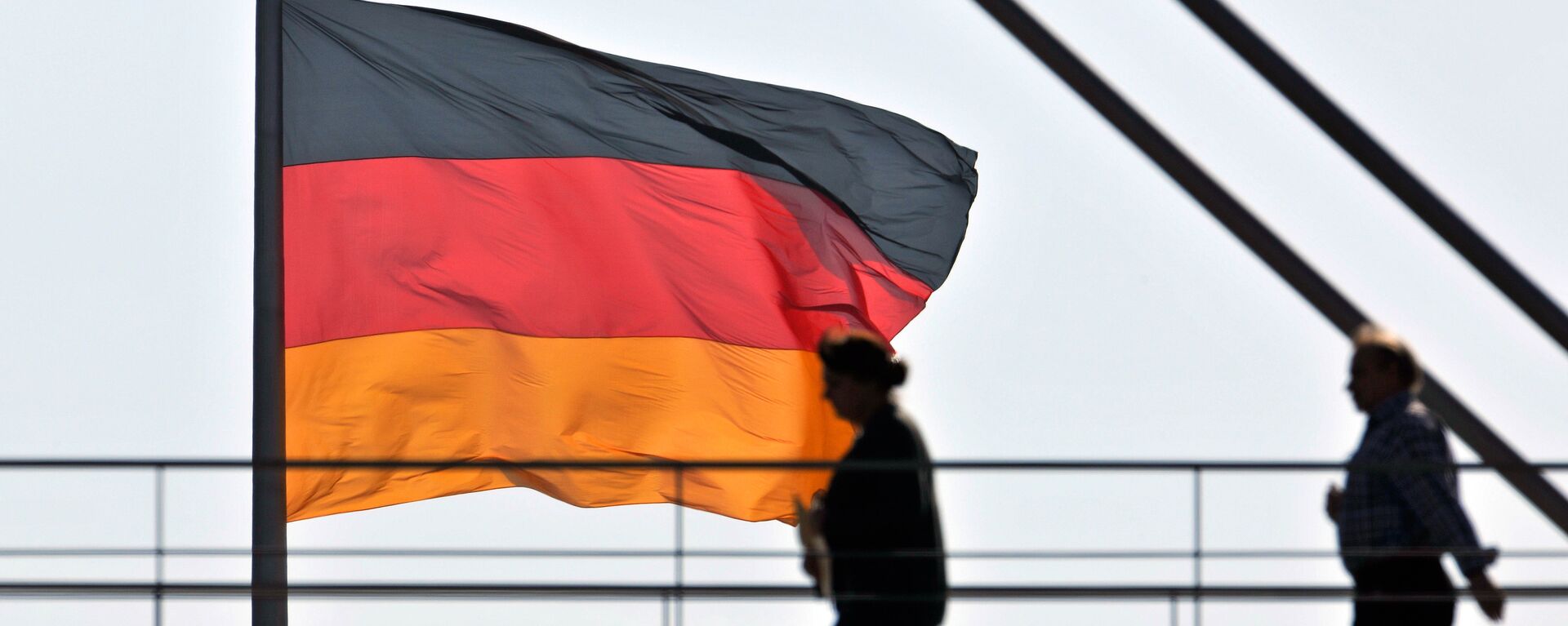https://sputnikglobe.com/20230612/berlin-to-face-production-cuts-if-russian-gas-stops-flowing-via-ukraine---economy-minister-1111094585.html
Berlin to Face Production Cuts If Russian Gas Stops Flowing Via Ukraine - Economy Minister
Berlin to Face Production Cuts If Russian Gas Stops Flowing Via Ukraine - Economy Minister
Sputnik International
Germany will have to reduce or curtail its industrial production if Russia and Ukraine fail to extend the deal on transit of gas that is due to expire in 2024, Economy Minister Robert Habeck said on Monday.
2023-06-12T18:50+0000
2023-06-12T18:50+0000
2023-06-12T18:50+0000
economy
ukraine
russia
naftogaz
germany
russian gas
https://cdn1.img.sputnikglobe.com/img/07e6/0c/1f/1105952596_0:130:3181:1919_1920x0_80_0_0_fcb5c1c5c55124bb46b67979e2356fa1.jpg
"If Russian gas stops flowing in Eastern Europe in the same volume it has been flowing via Ukraine up to this moment, it will lead to something which has been agreed at the European level — we will have to reduce our industrial production or even curtail it before people start to freeze there," Habeck said at the East German Economic Forum. The minister also stated that it is impossible to predict what would happen to the deal on gas transit between Moscow and Kiev amid the current conflict in Ukraine. Due to the current uncertainty and possible risks for the German economy, Berlin has to store more gas and further develop infrastructure necessary for its imports, including building terminals for liquefied natural gas, the German minister added. In late May, the Washington Post reported that Ukrainian state-run energy company Naftogaz wanted to keep pumping Russian gas through Ukraine despite the ongoing conflict, as transit brings profits and limits the area of Russian air strikes. To date, Russia’s Gazprom supplies about 40 million cubic meters of gas per day to the Sudzha entry point on border with Ukraine for further transit to Europe. The current transit contract expires in December 2024.
https://sputnikglobe.com/20230527/germanys-recession-is-eus-first-falling-domino-1110615851.html
ukraine
russia
germany
Sputnik International
feedback@sputniknews.com
+74956456601
MIA „Rossiya Segodnya“
2023
Sputnik International
feedback@sputniknews.com
+74956456601
MIA „Rossiya Segodnya“
News
en_EN
Sputnik International
feedback@sputniknews.com
+74956456601
MIA „Rossiya Segodnya“
Sputnik International
feedback@sputniknews.com
+74956456601
MIA „Rossiya Segodnya“
russia, russian gas, germany, germany without russian gas, german economy
russia, russian gas, germany, germany without russian gas, german economy
Berlin to Face Production Cuts If Russian Gas Stops Flowing Via Ukraine - Economy Minister
BERLIN (Sputnik) - Germany will have to reduce or curtail its industrial production if Russia and Ukraine fail to extend the deal on transit of gas that is due to expire in 2024, Economy Minister Robert Habeck said on Monday.
"If Russian gas stops flowing in Eastern Europe in the same volume it has been flowing via Ukraine up to this moment, it will lead to something which has been agreed at the European level — we will have to reduce our industrial production or even curtail it before people start to freeze there," Habeck said at the East German Economic Forum.
The minister also stated that
it is impossible to predict what would happen to the deal on gas transit between Moscow and Kiev amid the current conflict in Ukraine.
Due to the current uncertainty and possible risks for the German economy, Berlin has to store more gas and further develop infrastructure necessary for its imports, including building terminals for liquefied natural gas, the German minister added.
In late May, the Washington Post reported that Ukrainian state-run energy company Naftogaz wanted to keep
pumping Russian gas through Ukraine despite the ongoing conflict, as transit brings profits and limits the area of Russian air strikes.
To date, Russia’s Gazprom supplies about 40 million cubic meters of gas per day to the Sudzha entry point on border with Ukraine for further transit to Europe. The current transit contract expires in December 2024.



